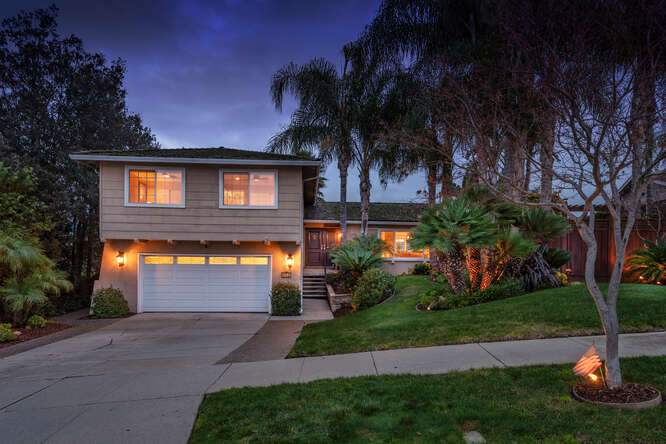Ensure a Good First Impression
Homebuyers make up their minds about a property in the first few minutes. Make sure your home makes that vital first impression. New paint does wonders. Make sure the front yard is flawless with manicured lawns and attractive foliage. Add a hanging basket or some flower pots at the door. The front door is also critical, make sure the hardware is presentable.
Make them Feel Welcome
Don’t forget buying a home is in many ways an emotional decision, so it’s important to give buyers that warm and fuzzy feeling! Keep the temperature in the home at a comfortable level. Light some candles in the bathrooms and make sure it smells nice and clean. Have fresh flowers around the house.
But don’t make it too personal
Make them feel welcome, but don’t go too far. Too much personality, for example in the form of personal possessions and family photos makes it hard for buyers to visualize living in the space.
Clear out the Clutter
Make sure your property is clutter-free for all your viewings. This will make your home look and feel bigger, and the buyers will be able to imagine how they could make the space their own. Make sure that there is a clean, logical flow through the home by getting rid of all excess furniture. Less is more.
Improve Lighting
This is another way to make your home seem more spacious. Open all your curtains and flood the space with natural light. Make sure the darker rooms are also lit. Invest in some light fixtures and fittings, and place them strategically to illuminate even the gloomiest of areas.
Decorate to Sell That House
Slap on a fresh coat of paint in a neutral color to give it that blank canvas look but do not be too sterile. Have some contrast in the trim as well as the ceiling. Neutral colors make properties appear lighter and brighter, so take advantage of this inexpensive and easy option. You may also add color with decorative window coverings, rugs, and towels.
Clean Up Your Act
Your home should be spotless. Make sure the beds are made and the countertops are free of clutter. The dishes should be put away and nothing should be scattered on the floor. Don’t forget to tidy your garden too: Cut the shrubs back, sweep the patio, and wipe down the backyard furniture.
Those Minor Repairs You Put Off
It is easy to forget things such as broken doorknobs, cracked tiles, holes in walls and damaged but buyers will notice them first thing as they are walking around your home.
Maximize Your Space
The golden rule of selling is to make your space look and feel bigger and better than what your competitors have to offer. We’ve already mentioned that lighting your home, both naturally and artificially, can maximize your assets, but getting rid of bulky furniture can also be a great way of making the most of what you have. Large pieces of furniture make a space feel smaller, so put these items into storage and dress your home with more compact pieces.
Don’t Forget Your Floors
Make the investment of improving and investing in those floors. Worn carpets and damaged vinyl floors need to be replaced, and wooden floors especially should undergo some maintenance. This is not chap by any means, but the prospect of selling your home for the best possible price will likely outweigh the cost.
Remove Pets During Showings
You do not need to remind the potential buyer that the previous owner kept pets.
Try to remove your pets from your home when you are showing the home. Having a pet in the house or yard can create complications for your agent while trying to show the house, and puts your pet at risk of accidentally getting out during the showing. There are also liability issues to deal with as well. They may react differently to stranger and it may cause them stress. All pet-related damage should be repaired prior to showing the home. Make sure to also remove all odors and stains. New visitors will notice smells when they come to view the house. This is not something you want to happen. Have your carpet and floors professionally cleaned or replaced. Pick up any messes in the backyard and have any sod replaced and other damage repaired.
2,869 total views, 1 views today





